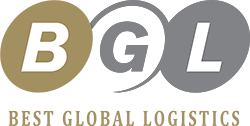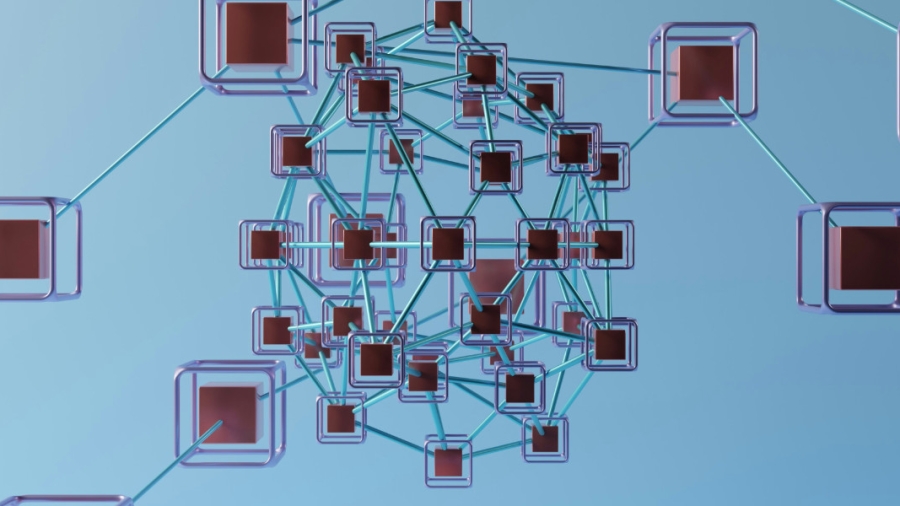The supply chain has long been a complex web of interactions, riddled with inefficiencies and challenges. Payments can take days to process, contracts often require costly intermediaries, and tracing the origin of products is cumbersome. These challenges are further compounded by global disruptions such as the COVID-19 pandemic, geopolitical tensions, and evolving regulations.
The costs of these inefficiencies are staggering:
– $184 million annually: the average cost of supply chain disruptions for organizations.
– $550 billion: annual losses in the shipping industry due to manual errors.
– 60% of companies lack visibility beyond their tier-1 suppliers.
– Counterfeit products cost legitimate businesses over $2.2 trillion globally.
Blockchain technology offers a promising solution to these challenges, enabling smarter, more transparent, and more efficient supply chains. Let’s explore how blockchain is revolutionizing the supply chain industry with real-world examples.
What Is Blockchain in the Supply Chain?
At its core, blockchain is a distributed digital ledger—a shared, decentralized database that records transactions securely and transparently. Transactions are grouped into “blocks,” linked in a chain, and stored across multiple nodes (computers) in a network.
This decentralized structure ensures:
– Immutability: Tampering with a transaction is nearly impossible without altering every copy of the ledger.
– Transparency: Every participant in the network sees the same version of the ledger.
– Efficiency: Transactions happen directly between parties, eliminating the need for intermediaries.
In supply chain operations, blockchain serves as the backbone for smart contracts, real-time tracking, and authentication systems. Businesses typically use private blockchains, tailored for efficiency and security in closed ecosystems.
Real-World Applications of Blockchain in Supply Chain
1. Luxury Goods Authentication
Counterfeit goods are a major issue in the luxury industry. Blockchain helps brands verify product authenticity:
– The Aura Consortium tracks the origins of luxury items for brands like Louis Vuitton and Prada.
– Breitling issues digital passports for its watches.
– De Beers uses blockchain to trace diamonds from mine to market.
How it works: Each product receives a unique digital identity on the blockchain. Customers can scan a code to access its full history, ensuring they receive genuine products.
2. Automotive Supply Chain
Blockchain enhances efficiency in the automotive sector:
– Tomcar, an Australian manufacturer, uses Bitcoin to pay international suppliers, reducing transaction times and fees.
– Tesla leverages blockchain to monitor sustainability in its raw material sourcing.
– BMW’s Vehicle Digital Passport integrates IoT with blockchain to track vehicle history and enable automated rental services through smart contracts.
3. Food Safety and Traceability
Blockchain ensures transparency and safety in food supply chains:
– Walmart tracks pork sales in China, tracing every step from farm to store.
– Starbucks’ Bean-to-Cup program allows customers to follow the journey of their coffee from origin to purchase.
4. Tea and Coffee Industry Transparency
In industries prone to counterfeiting, blockchain offers traceability solutions:
– Unilever and Sainsbury’s partnered to use blockchain for sustainable tea production and traceability.
– India’s Tea Board plans to implement blockchain for end-to-end tracking
5. Energy Redistribution in Micro-Grids
Blockchain enables decentralized energy sharing:
– Brooklyn Microgrid uses blockchain to allow residents with solar panels to sell excess energy directly to neighbors.
6. Cold Chain Monitoring
Sensitive goods like vaccines and perishables require strict environmental conditions. Blockchain, combined with IoT sensors, provides real-time data and automatic alerts:
– Moderna utilized blockchain during the COVID-19 vaccine rollout to ensure supply chain transparency.
7. Smart Contract Automation
DHL’s smart pallets use blockchain to monitor location, temperature, and humidity, automatically alerting parties when conditions deviate from acceptable ranges.
Key Benefits of Blockchain in Supply Chains
- Consensus: All parties agree on the validity of transactions.
- Provenance: Clear ownership and origin records for every asset.
- Immutability: Transactions cannot be altered, ensuring data integrity.
4. Finality: All participants access the same, verified version of the ledger.
Challenges in Blockchain Adoption
While the potential is vast, blockchain faces some hurdles:
– Ecosystem Development: Blockchain adoption requires participation from all supply chain partners.
– Currency Volatility: Cryptocurrencies like Bitcoin can fluctuate in value, complicating payments.
– Skill Gaps: Businesses need expertise in blockchain technology and its integration.
– Cultural Shifts: Adopting blockchain requires a mindset shift towards decentralization.
The Future of Blockchain in Supply Chain
Blockchain is no longer just a promising technology; it’s becoming the foundation for smarter supply chains. By integrating with IoT, AI, and edge computing, blockchain-enabled systems are creating more resilient, sustainable, and transparent supply networks.
Although challenges remain, businesses can start small—leveraging blockchain for smart contracts and traceability—and expand its use as the ecosystem matures. Over time, blockchain will transform supply chain operations, unlocking unprecedented levels of efficiency and collaboration.
Are you ready to embrace the future of supply chain with blockchain? Let us know how you’re planning to integrate this game-changing technology into your operations!



